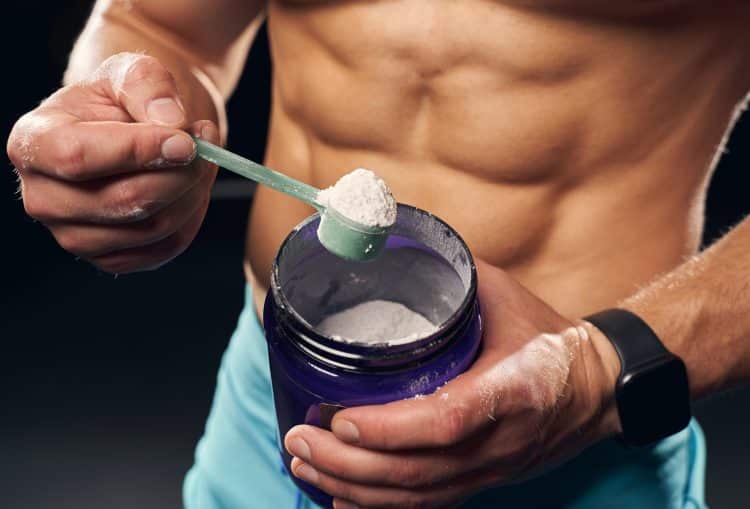When you talk about fat loss, most people imagine sweat-soaked athletes. While cardio can help you enter a calorie deficit, you don’t lose the extra kilos while you are on the training equipment. Your body sheds the spare tire while you’re in deep sleep.
As a personal trainer, I often surprise clients seeking weight loss advice by inquiring about their sleeping habits. Most usually expect a kickass weight loss training program, not discussions about rest and recovery.
Scientific research has uncovered fascinating links between sleep and fat loss. In this article, we go over the 10 best science-backed ways to burn more fat during sleep.
10 Science-Backed Strategies to Burn Fat While Sleeping
Here are 10 ways to burn more fat while sleeping (science-based):
Strategy 1: Improve Sleep Duration & Schedule
Spending up to an hour on the treadmill and cutting around 500 calories from your diet will only get you so far in your weight loss ambitions. Seven to nine hours of quality shut-eye time is necessary to allow your body enough time to recover.
“People who don’t get enough sleep will have a harder time losing fat and building muscle,” said Dr. Mike Israetel.
Sleep is when your body releases growth hormone, which can help build muscle and boost fat metabolism. Furthermore, sleep deprivation can mess with your cortisol, leptin, and ghrelin levels, making your body cling to the extra pounds.
According to a randomized controlled trial, people who slept more were found to burn twice as much body fat and lose 60% less muscle mass than people who slept less. (1)
Going to bed and waking up at the same time daily can help regulate your internal clock, making it easier to fall asleep and wake up feeling refreshed. A study published in The Journal of Clinical Investigation found that sleeping in a cooler environment can increase metabolism as your body burns more calories to keep itself warm. (2)
Keep your bedroom cool, dark, and quiet. Don’t allow electronic devices in the bedroom, and avoid using gadgets after 9 p.m. to limit blue light exposure, which can hamper sleep quality. Adopting a bedtime routine like reading a book, stretching, and taking a warm bath can help you fall asleep faster.
Strategy 2: Incorporate Regular Exercise To Build Muscle (But Not Too Close to Bedtime)
Muscle tissue is more metabolically active than body fat, meaning muscular people burn more calories throughout the day than their counterparts, even at rest. This is known as the basal metabolic rate (BMR) and accounts for a significant amount of your daily calorie expenditure. (5)
Progressive overload is your best bet if you aim to build muscle. It involves gradually increasing the training volume and frequency to avoid muscle and strength plateaus. To promote hypertrophy, aim for weights that allow you to hit mechanical failure within the eight to 12-rep range.
That said, pushing yourself too hard every day can lead to exhaustion and chronic fatigue, which can spike cortisol levels and cause your body to hold onto body fat. Aim for at least one rest day a week. Advanced exercisers might need a couple of rest days each week to compensate for the higher training volume.
Also, avoid exercising too close to bedtime. It can raise your body temperature and cortisol levels, making falling asleep harder and impairing sleep quality.
Strategy 3: Optimize Your Thyroid Function
The thyroid, a small butterfly-shaped gland in the neck, supports the rate at which the body uses fats and carbohydrates, effectively regulating metabolism. An efficient thyroid function helps you burn more fat, even when you are sleeping.
Low sleep quality can affect thyroid hormones and hamper metabolism (3). A lack of sleep can also increase cortisol levels, which can interfere with the thyroid’s ability to fire up metabolism.
Certain nutrients can improve your thyroid function. Ensure you are getting enough iodine (found in seafood and iodized salt), selenium (found in Brazil nuts, seafood, and meat), and zinc (found in meat, shellfish, legumes, and nuts).
If you cannot lose weight even after following a balanced diet and training program and sleeping for seven to nine hours each night, you should get a thyroid blood test to check for deficiencies. It can reveal the underlying issues that can be addressed with targeted treatment.
Strategy 4: Stay Hydrated Throughout the Day
Your body is like a high-performance engine. It needs the right fuel and fluids to run optimally. Most people solely focus on nutrition while trying to lose fat and completely ignore the role of hydration.
Whenever you drink a glass of water, it starts thermogenesis — the process where your body burns energy to heat the water to your core temperature. Drinking water at regular intervals throughout the day can help burn a considerable amount of calories.
The liver plays a crucial role in burning fat. However, when you are dehydrated, it prioritizes water retention over metabolizing fat, which is counterproductive to your goals.
Furthermore, many people often mistake thirst for hunger. Whenever you are starving, drink a glass of water before you eat something. This will reduce the risk of binging on junk food.
Start your day with 16-24 ounces of water to kickstart your metabolism and replace the fluids lost overnight. Drink at least a gallon of water daily to ensure optimal body functioning, improve sleep quality, and maximize fat burning.
Strategy 5: Eat Chilli Pepper and Spicy Food
This is one of the most underrated ways of pushing your metabolism into top gear. You’ve probably experienced the burn after biting into a fiery chili pepper. You feel your core body temperature rise, and sweat drizzles down your forehead. Eating spicy food is like cranking up the fat-burning furnace.
Capsaicin, the fat-fighting, hot compound in chili peppers, can boost your metabolism and thermogenesis. (4) This fat-burning uptick can last for several hours after you’ve eaten the pepper.
Not only that, capsaicin can curb appetite, which can help you stick to your diet and avoid late-night snacks.
I recommend adding chopped chili peppers or a sprinkle of cayenne pepper to your favorite dishes. These are versatile ingredients that can be added to most recipes. Alternatively, you can use your favorite hot sauce for an instant metabolic boost. However, favor brands with minimal added sugar to avoid unnecessary calories.
Strategy 6: Consider Supplements
Irrespective of how hard you try to prioritize recovery, there will be days when you are so exhausted or stressed that it disrupts your sleep. Not getting a good night’s sleep can further exaggerate the problem and put you behind your fat loss goals.
This is where supplements shine.
Melatonin is a hormone that signals your body it’s time for bed. Furthermore, it can stimulate the production of “brown fat,” which can burn calories to generate heat. (6)
A small dose of melatonin (0.5-3mg) about 30 minutes before bed can do wonders. That said, you must consult your healthcare provider before starting any new supplementation.
Magnesium is also an excellent supplement for improving sleep quality, soothing sore muscles, and improving metabolism. A magnesium deficiency can hamper the body’s ability to regulate blood sugar, which can increase fat storage.
Aim for 300-400mg of magnesium daily and prefer the magnesium glycinate or citrate forms, as they are easier on the stomach. Pair the magnesium with a calcium supp for better absorption.
Other supplements you can experiment with include ashwagandha, theanine, and GABA.
Strategy 7: Limit Alcohol and Caffeine Consumption
Alcohol can sabotage your fat-burning efforts by forcing your body to prioritize digesting booze instead of torching calories. On the flip side, caffeine is a stimulant that can make falling asleep harder.
I wouldn’t ask you to cut out alcohol and caffeine completely. However, you must scale back their consumption for better sleep quality.
Set a cutoff time for your day’s final coffee or adult beverage, ideally three to four hours before bedtime. Both alcohol and caffeine are diuretics, so you must drink a hefty amount of water throughout the day to counteract their effects.
You could also swap coffee with an herbal tea that helps you fall asleep or sodas for a refreshing pick-me-up.
Strategy 8: Manage Stress
Cortisol can hinder your fat-burning ambitions and lead to fat storage around the midsection. Chronically high levels of cortisol can disrupt sleep. Plus, when you are not getting enough sleep, it can further boost cortisol production. It’s a vicious cycle that you must avoid.
Meditation, yoga, journaling, and outdoor physical activities are proven ways to lower stress levels. If these methods don’t work for you, I recommend getting professional help.
Strategy 9: Prioritize a Healthy Protein-Rich Diet (Especially Before Bed)
Protein is the building block of muscle. Your muscles sustain micro-tears during a workout, and you must consume sufficient protein (at least 0.8 grams per kilogram of body weight) to repair the muscle fibers.
A high-protein diet can increase your metabolic rate, ensuring you burn more calories even at rest. The thermic effect of food (TEF), which is the energy your body expends to digest foods, also plays a crucial role in this.
Certain amino acids in protein, like tryptophan, can also help regulate sleep patterns. Aim for 20-30 grams of protein in your final meal before bed. I prefer lean meats, fish, eggs, and dairy. You could also opt for casein protein, as it ensures sustained amino acid release throughout the night.
Strategy 10: Cold Exposure
Cold exposure activates brown adipose tissue (BAT), which burns calories to generate heat. This is also the reason you shiver in the cold. Studies show that spending time in the cold can boost BAT activity and metabolism. (7)
Begin your day with a cold shower. You could also add ice baths or cold plunges to your morning ritual. Exercising in cold weather during the winters can further boost the fat-burning results.
Finally, sleep in a cold room (around 65-68°F) to improve sleep quality and activate the brown fat stores.
Note: The content on Fitness Volt is for informative purposes only. Do not take it as medical advice to diagnose, prevent, or treat health problems. If you’re suffering from a health issue, are pregnant, or are under 18 years old, you should consult your physician before starting any new supplement, nutrition, or fitness routine.
Conclusion
You probably now understand that fat loss during sleep involves multiple factors, and you must follow a healthy diet, exercise regularly, and ensure wholesome overall lifestyle habits to get rid of the spare tire.
That said, if you have any underlying medical conditions, you must consult your healthcare provider before making any significant changes to your routine.
References:
Fitness Volt is committed to providing our readers with science-based information. We use only credible and peer-reviewed sources to support the information we share in our articles.
- Nedeltcheva, A. V., Kilkus, J. M., Imperial, J., Schoeller, D. A., & Penev, P. D. (2010). Insufficient sleep undermines dietary efforts to reduce adiposity. Annals of Internal Medicine, 153(7), 435–441.
- van der Lans AA, Hoeks J, Brans B, et al. Cold acclimation recruits human brown fat and increases nonshivering thermogenesis. J Clin Invest. 2013;123(8):3395-3403. doi:10.1172/JCI68993
- Nazem MR, Bastanhagh E, Emami A, Hedayati M, Samimi S, Karami M. The relationship between thyroid function tests and sleep quality: a cross-sectional study. Sleep Sci. 2021;14(3):196-200. doi:10.5935/1984-0063.20200050
- Leung F. W. (2014). Capsaicin as an anti-obesity drug. Progress in drug research. Fortschritte der Arzneimittelforschung. Progres des recherches pharmaceutiques, 68, 171–179.
- Bosselaers, I., Buemann, B., Victor, O. J., & Astrup, A. (1994). Twenty-four-hour energy expenditure and substrate utilization in bodybuilders. The American journal of clinical nutrition, 59(1), 10–12.
- Halpern, B., Mancini, M. C., Bueno, C., Barcelos, I. P., de Melo, M. E., Lima, M. S., Carneiro, C. G., Sapienza, M. T., Buchpiguel, C. A., do Amaral, F. G., & Cipolla-Neto, J. (2019). Melatonin Increases Brown Adipose Tissue Volume and Activity in Patients With Melatonin Deficiency: A Proof-of-Concept Study. Diabetes, 68(5), 947–952.
- Ouellet V, Labbé SM, Blondin DP, et al. Brown adipose tissue oxidative metabolism contributes to energy expenditure during acute cold exposure in humans. J Clin Invest. 2012;122(2):545-552. doi:10.1172/JCI60433
منبع: https://fitnessvolt.com/burn-more-fat-while-sleeping/



